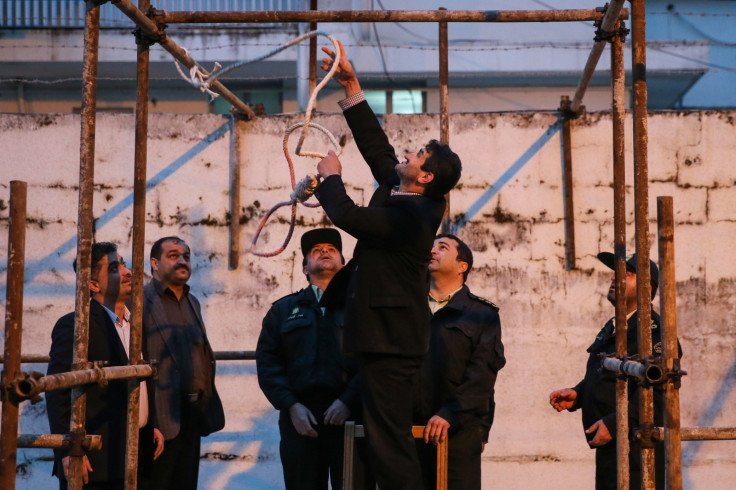Iran's new drug laws could spare 5,000 prisoners the death penalty

KEY POINTS
- Majority of Iran's 500 executed prisoners last year put to death for drug offences.
- Campaigners hail softening of drug-trafficking laws.
Around 5,000 Iranian prisoners could be spared the death penalty following a softening of drug laws in the deeply conservative country.
Iran has the highest number of executions each year after China. More than 500 people were executed in Iran in 2017, including at least five juvenile offenders. The majority were put to death for drug offences, according to the Guardian.
The Iranian judiciary has abolished capital punishment for certain drug offences, Iranian news agency Mizanonline reported on Tuesday (9 January).
Judicial chief Ayatollah Sadeq Larijani ordered officials to halt the executions of prisoners affected by the new laws.
Larijani told media that most prisoners would have their death sentences reduced to extended jail terms.
In August, the Iranian parliament raised the threshold on the amount of drugs considered a capital offence.
Under the previous law, someone possessing 30g of cocaine could face the death penalty. The new law raised the amount to 2kg. The threshold for opium and marijuana was increased tenfold to 50kg.
Human rights campaigners have welcomed the softening of the laws and hailed it as a significant step towards halting executions worldwide.
Mahmood Amiry-Moghaddam, of the NGO Iran Human Rights, told the BBC: "If implemented properly, this change in law will represent one of the most significant steps towards reduction in the use of the death penalty worldwide."
But he added that he was concerned that the new laws would not apply to prisoners who are already on death row.
"One caveat is that the commute is not automatic and convicts need to take the first step themselves and make sure their case is reconsidered," he said.
"Since most of those sentenced to death for drug offences belong to the most marginalised parts of Iranian society, it is not given that they have the knowledge and resources to apply for commuting their sentence."






